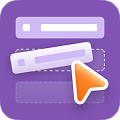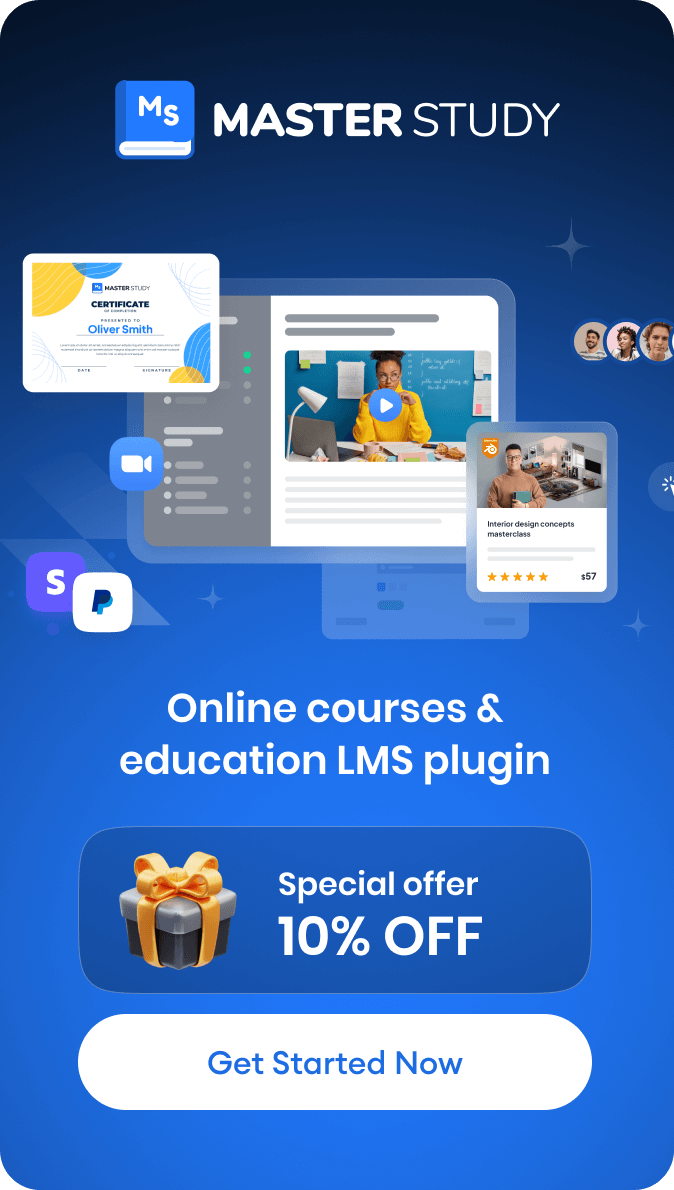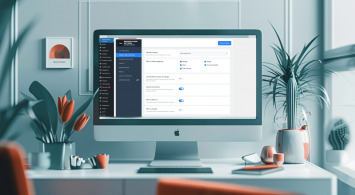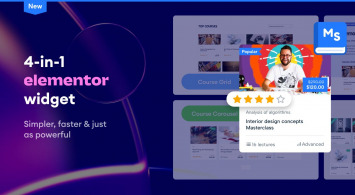Are you looking for a way to keep your students engaged and coming back for more? Drip content may be the answer. But what exactly is drip content, and how can you use it to keep your audience interested?
In this blog, we’ll explore the concept of drip content and provide tips on how to use it effectively. Whether you’re a content creator, instructor, coach, teacher, marketer, or business owner, you’ll find valuable information on how to use drip content to keep your audience engaged and coming back for more.
Why Drip Content is Important in LMS
- What is Drip Content?
- 6 reasons to use drip Content on your Site
- Example of LMS with Drip Content Feature
- Wrapping Up
What is Drip Content?
Drip content is a marketing strategy that involves regularly releasing content to your audience, often in small, bite-sized pieces.
You might be wondering: Why would I want to put out small bits of content over an extended period instead of just one flow of lessons?
The answer is simple: It makes it easier for your target audience to digest everything you have to say, which means they’re much more likely to pass your course and gain the information, or skills.
Apart from online education, generally, you can use drip content can be used in a variety of ways, including:
- email marketing campaigns
- social media posts
- blog posts or videos
The key is to provide consistent, valuable content that keeps your audience coming back for more.
For example, if you were launching a new product, you could slowly use drip content to release information about the product over time. This would allow readers/viewers to learn about the product/complete the course and get excited about what’s in it for them in the end.
You can also use drip content to create a sense of anticipation for an upcoming event. For example, if you were planning a big sale, you could use drip content to release information about the sale in the weeks leading up to it. This would build excitement and encourage people to shop at your sale.
6 reasons to use drip Content on your Site
1. Make your audience come back
The internet moves quickly, and people have short attention spans. To get your message across, it’s important to make it easy for people to understand and digest what you’re saying.
Drip content helps people come back because it allows them to consume small pieces of information simultaneously instead of reading everything all at once. This makes it easier for people to absorb the information they need without feeling overwhelmed by all the information on the page or website.
2. Great for SEO
Drip content can help improve your site’s search engine optimization (SEO) by keeping your site fresh and active.
Google loves fresh content but wants updated website content to identify them as reliable sources. It also looks good when users can find what they’re looking for quickly and easily on your site.
By releasing content regularly, you can signal to search engines that your site is active and up-to-date, which can help improve your ranking in search results.
3. Stay organized when creating your course
If you’re creating multiple pieces of content at once, they can easily get out of order or mixed up. Drip content helps keep things organized by automatically sending out content at specific times.
For example, if you want to send out an email newsletter every week on Tuesday morning, you must create an email template and schedule it for the desired day and time.
4. Easily repurpose old content
One benefit of drip content for your website is that it can help you easily repurpose old content. This means that instead of letting your old content gather dust in your site’s archives, you can create a series of new, fresh, and engaging posts or articles that will keep your audience coming back for more.
By breaking your old content into smaller, more digestible pieces and releasing them gradually over time, you can create a steady stream of new content that will keep your audience engaged and returning to your site regularly.
5. Gain a better understanding of your users
A common question for any business is, “Who are my customers?” This is especially true when you’re starting and still need to get a large customer base.
Drip content can help answer that question by giving insight into what content your users like and don’t like.
For example, if someone starts a course, views only two lessons, and doesn’t return for another 20 days, this might indicate that they didn’t find the content helpful or interesting enough to keep coming back.
By providing drip content to your users, you can gain valuable insights into their interests and preferences. This can help you tailor your content and marketing strategies to meet their needs and preferences better, resulting in increased engagement and loyalty from your audience.
6. Generate more leads and conversions
By providing your enrolled students with a steady stream of engaging and informative content, you can keep them interested in your brand and encourage them to take action. This can be particularly effective if you use targeted content tailored to your audience’s interests and needs.
Drip content allows you to create a customized message that addresses their needs. This gives you a chance to build relationships with potential customers while positioning your brand as an expert in your industry.
As you provide relevant and valuable information, you can build trust and credibility with your audience and increase the likelihood that they will take the next step and become customers.
Example of LMS with Drip Content Feature
Let’s look at the example of one of the LMS, and how the whole process of setting up the system of interconnected lessons takes place.
Masterstudy LMS is a highly customizable and easy-to-use WordPress plugin that allows you to create step-by-step drip content and manage your e-learning courses.
You have a variety of options on how to organize the course material. If you enable the option to Lock lessons successively in the Sequential Drip Content menu on the dashboard. The order of the lessons will be locked, and students can access the second lesson once they finish the first.

You can use the option to lock the lesson before it begins to keep it locked until the lesson’s start time. There is an option to enter the start date and time in the lesson settings section by going to the lesson editing page.
Students can follow the countdown until the lecture unlocks at the scheduled time (in this case, at 6:50 PM as shown in the screenshot).
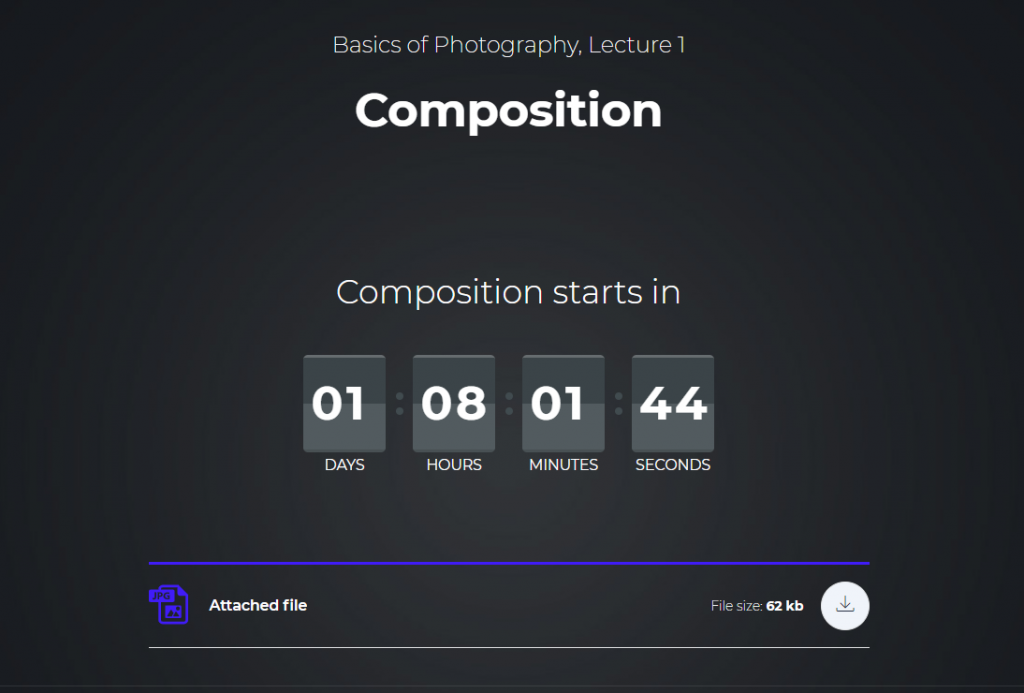
Another choice is to unlock the lesson for a set amount after the first purchase. For instance, you will be able to turn on this feature in the lesson settings.

The countdown to the lesson’s start time will be displayed to the class at this time.
Additionally, you can customize the sequence based on your preferences and course requirements. This looks like as you are adding the dependencies to the specific lessons.
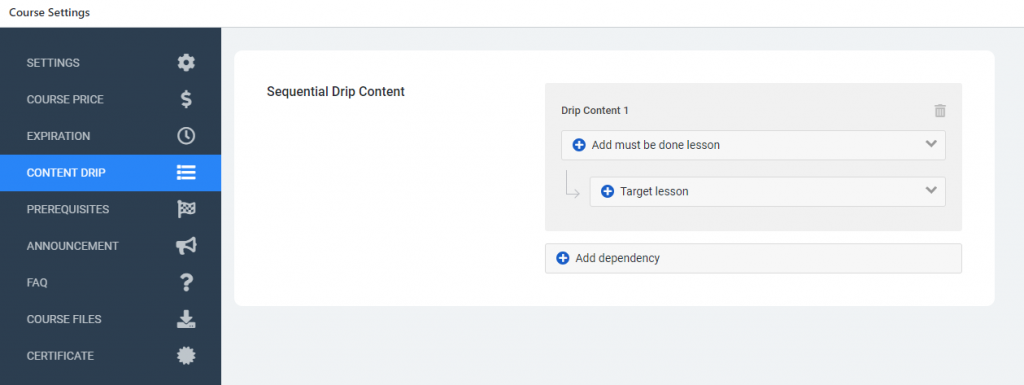
So in this case, the flow of lessons will go step-by-step according to the progress of the student. Only after the parent lesson will students be able to access the subsequent session. Lessons that are not accessible will be identified as “locked” as soon as you set up the lesson order.
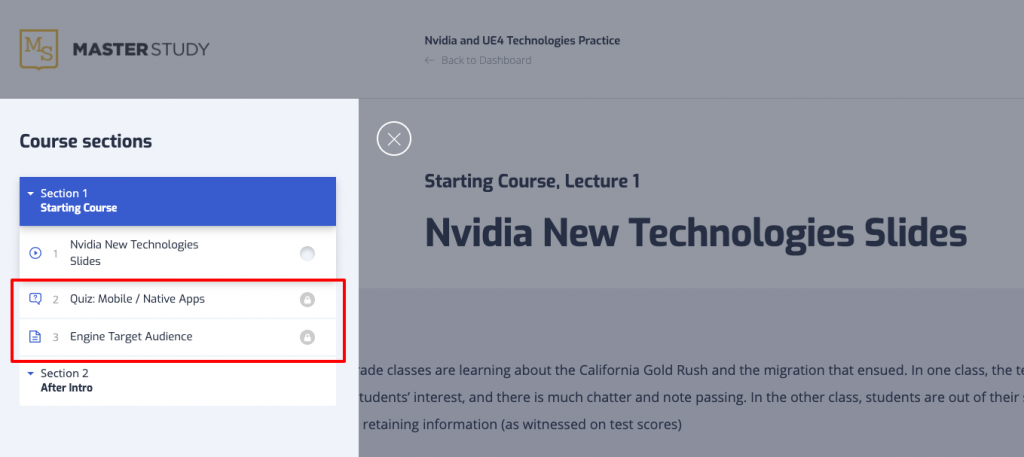
Wrapping Up
Drip content is a simple, low-cost way to build your LMS and lessons funnel. It’s also an excellent resource for nurturing and engaging with customers, especially before your launch.
Currently, you do not need to look for any workarounds or tools to create a lesson sequence. Almost all full-fledged LMS provide this capability. As an example, we looked at the creation of drip content in MasterStudy LMS, which is an easy and intuitive process.
As long as you have the resources and time to devote to it, drip content can be an effective and valuable tool in your online education arsenal.





















